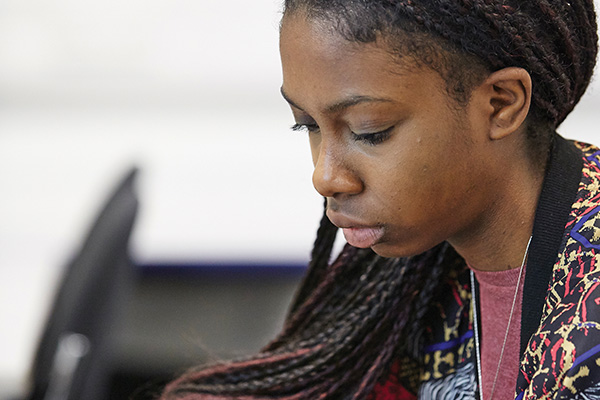The Centre for Brain and Cognitive Development (CBCD) in London is offering a 3-year fully funded PhD position in developmental cognitive neuroscience. The CBCD is a world leading international research centre exploring the links between brain and behavioural development (https://cbcd.bbk.ac.uk/). This project will make use of the newly developed Toddlerlab: a dedicated 5-story research facility developed for studying toddler and preschool development in naturalistic environments. The facility includes specialist labs such as the Home lab, the Preschool lab, and the CAVE visual reality lab, all fitted with motion capture, head mounded eye-tracking and wearable EEG and fNIRS. 
Supervisors : Prof Denis Mareschal and Dr. Paola Pinti
Context
This PhD project will run as part of a 4 year Leverhulme Trust funded research programme exploring the development of behavioural and neural synchrony in collaborative problem-solving. The preschool years (3- to 5-year-olds) are a particularly important developmental period because they correspond to a phase of very rapid development in the planning, self-control, and multi-tasking skills necessary for complex problem solving in social contexts. It is also a period in which the child’s social environment is greatly expanded though going to school or participating in organised playgroups. However, it is also a particularly challenging age to study because preschool children find it difficult to sit still for the extensive periods of time required to acquire good quality neuroimaging data. Thus, the advent of lightweight and wearable neuroimaging technologies that can be fitted into a headcap (or "hat") provides a unique opportunity to shed some light on what has been described as the “black-hole" of developmental cognitive neuroscience research. Little attention has been given to the contexts and situations that can promote shared goal formation during young preschoolers’ collaborative problem solving. So how might pre-schooler establish and maintain a joint goal—especially if they have poor overt communication skills?
One possibility is social synchrony – including the synchronisation of brain activity and behaviours. Brain synchronisation between two individuals interacting socially has been observed in electrical brain activity (using Electroencephalography, EEG) and cerebral blood oxygenation levels (using functional Near Infrared Spectroscopy, fNIRS). The mechanisms by which humans coordinate their brain responses in real-time during social interactions remain unclear. Hyperscanning involves recording brain activity in pairs of individuals engaged in a common activity. Using this technique, brain-to-brain synchrony in adults was found to be linked with behavioural synchrony and the degree of social connectedness among partners. Several studies have also used neural synchronisation as a measure of the quality of the social bond and communication between a parent and child. Intriguingly, one study found that the interaction quality during a problem-solving task involving mothers and their preschool children determined the amount of neural synchrony observed in this couple higher neural synchrony during cooperation predicted the pair's problem solving success.
Project Description
There is ample evidence that collaborative problem solving can begin to some extent even in younger children (Brownell & Crriger, 1990, 1991; 2-year-olds). In addition, there is also evidence of behavioural and neural synchrony between mothers and their infants during social interactions. This PhD project will explore the origins of collaborative synchrony in 18- to 30-month-olds (toddlers). The Toddlerlab is ideally situated for studying this age group. Part of the challenge of this PhD project will be to develop testing protocols that are appropriate for this younger age group, in which understanding and reliably following explicit instructions are not securely acquired skills. The project will initially focus on assessing the synchrony between mothers and their toddlers during joint problems solving exploring whether the amount and appropriateness of the help provided by the mother is predicted by the quality of dyad synchrony. In a second phase, it will explore synchrony between the toddler and an older sibling, and finally between the toddler (2-year-old) and a familiar partner toddler (e.g., a family friend). The aim here is to identify whether the synchrony that initially supports prosocial interactions is gradually harnessed to enhance collaborative problem solving, before the toddlers are able to verbalise their need for collaboration.
Requirements
We are looking for a highly-motivated candidate with strong experimental psychology and programming skills and a desire to make an impact in the intersection of cognitive neuroscience with developmental psychology.
The candidate must have evidence of outstanding undergraduate academic performance in either cognitive science, psychology or computer science, artificial intelligence, 3D modelling/games design and ideally have (or be predicted to obtain) a strong Master’s degree in Cognitive/Developmental Neuroscience, or any cognate field (candidates will be asked to demonstrate how their background provides solid foundations to allow them to focus on the core aspects of this studentship).
Candidate must also demonstrate solid foundations in academic writing and presenting, in independently organising aspects of their research (e.g. through a previous dissertation if not publications) and experience of working with young children or infants.
Further details about the project may be obtained from:
Dr. Paola Pinti (p.pinti@bbk.ac.uk or Prof. Denis Mareschal (d.mareschal@bbk.ac.uk) and
Further information about PhDs at BBK is available from:
Birkbeck Psychological Sciences: https://www.bbk.ac.uk/study/2022/phd/programmes/RMPPSYCH
Application are to be made through the standard MPhil/Phd application process describe in the weblink above. Candidates applying for this position must make it clear in their personal statement and answer to the “funding source” question on the form that they are applying for the Leverhulme funded studentship.
Closing date for applications is: 30th June 2023
